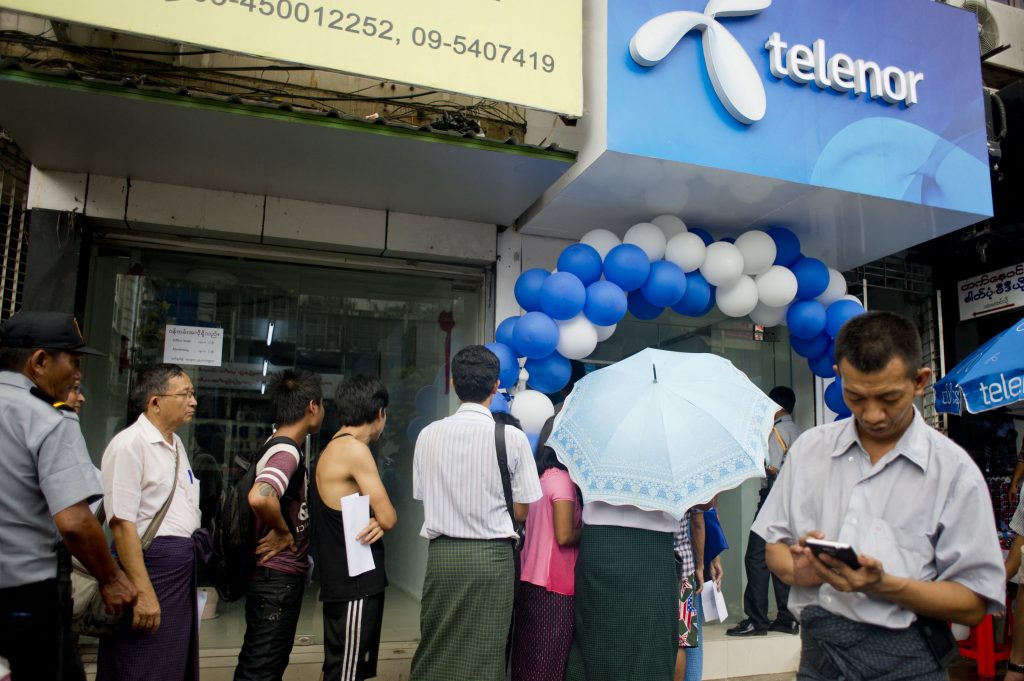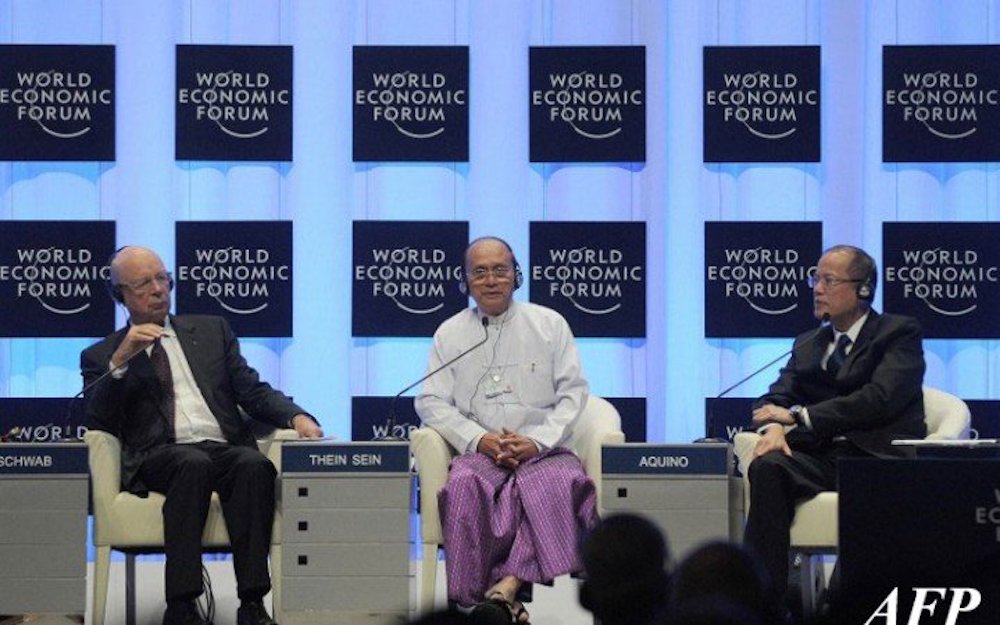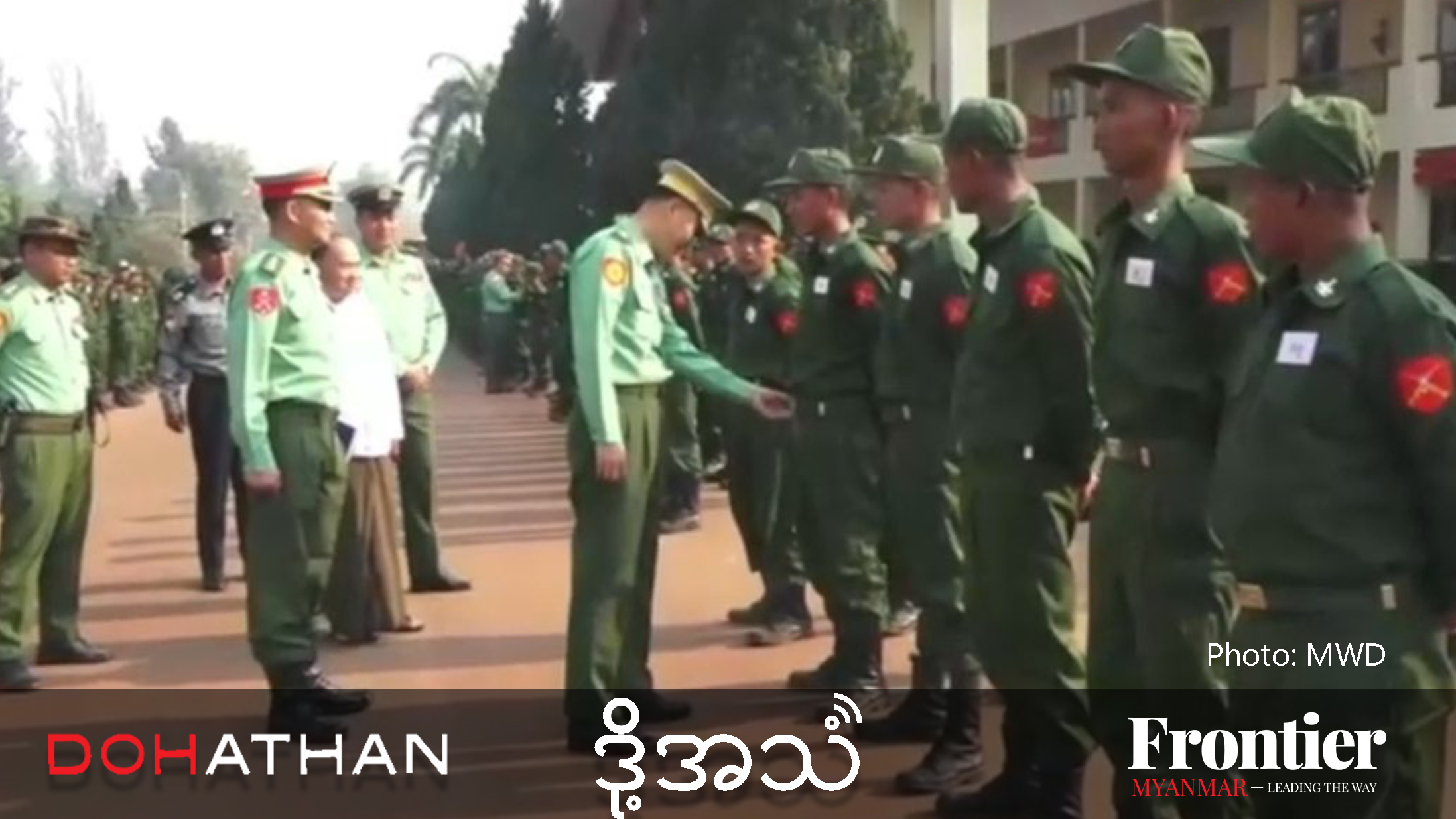Western-led state-building initiatives in Myanmar have long promoted a neoliberal model of development and democratisation that has inadvertently benefited the military over everyone else in Myanmar.
By MINN TENT BO | FRONTIER
United Nations Special Envoy on Myanmar Ms Noeleen Heyzer drew significant outrage over an interview in early February in which she called for a “power sharing” agreement with the military. Many found it especially insulting that she called for young people – many of whom have laid down their lives fighting for democracy this past year – to stay calm and work together with their killers as the country marked the one-year anniversary of the coup.
But her words should not have come as a surprise. Western state-building practices in Myanmar have long promoted a model of neoliberal development and democratisation that has hinged on cooperation from the military. Heyzer’s interview is merely the latest example of how the international community’s interventions in Myanmar have – and continue to be – part of the problem.
When the military initiated reforms in Myanmar in 2011, international donors quickly lined up to give financial support, offering funding and technical assistance to both the quasi-civilian government and civil society. Some of the aid, like the technical assistance provided by international organisations for the 2015 and 2020 elections, was desperately needed.
On the other hand, many of these organisations also downplayed human rights abuses, like the extensive internet shutdowns under the National League for Democracy government, and election cancellations in Rakhine, Shan and Chin states. Prior to Myanmar’s general elections last year, a number of Western donors also funded the production of a voter app that described the Rohingya as “Bengalis”, a derogatory term that implies they are illegal immigrants from Bangladesh.
For the last decade, Western interventions were based on neo-colonial and neoliberal processes and logics in which Myanmar voices and expertise were undermined and market-oriented reforms were prioritised by those who view economic prosperity and political stability as fundamentally connected.

Peace with or without progress
The peace process is a prime example of the failure of this mindset.
The Norwegians and the European Union poured millions of dollars into a process led and shaped by the military that advanced their own economic and political agendas. The result was a process that excluded certain ethnic armed groups – including those most actively engaged in combat, such as the Arakan Army and Ta’ang National Liberation Army – as well as civil society, and delayed discussions on potential political solutions, such as federalist models. This served to replicate the army’s modus operandi of divide and rule by separating ethnic groups and making a comprehensive peace agreement impossible.
The failure to push back on the exclusion of some groups clearly showcased donor disinterest in challenging the military’s role in the decision-making process. Donor funding not only legitimised this process, but helped prop up military-dominated political structures through the Nationwide Ceasefire Agreement – which required that ethnic armed groups abandon any plans for an independent state of their own, without actually addressing issues around political inclusion, governance reform or ethnic rights within the union.
The Norwegian government in particular has been criticised for mixing material interests with political objectives as part of its global peace-making activities. Its interventions and early support of Myanmar’s peace process reflected a “capitalist peace” paradigm – the belief that free markets will bring stability – that was fraught with conflicts of interest.
This is inherently problematic in a country where economic development projects, including large-scale hydropower projects along the Thanlwin (Salween) River and jade mining in Kachin State, have fuelled conflict for decades. Past military juntas also weaponised economic development through the practice of “ceasefire capitalism”, a term describing the junta’s handing out of business licences to armed groups in exchange for agreeing to end fighting.
A year after the Nordic nation played a leading role in setting up a peace initiative that relied on economic and development interventions in Myanmar’s conflict zones, Norway’s state-owned telecommunications company Telenor won a major tender in Myanmar. The Norwegian ambassador to Myanmar, who helped win the licence for Telenor, joined the company shortly thereafter. This underscores the conflicts of interests underpinning Norway’s approach to the peace process in Myanmar and make it necessary to scrutinise their role in its failure.
As international actors were jostling for access to Myanmar’s untapped markets, another crisis was unfolding in Rakhine. Neoliberal approaches to state-building and a desire for “engaged dialogue” with the army also contributed here. In the years leading up to the Rohingya genocide, Western governments often tiptoed around the issue of Rohingya identity, prioritising access to the military over justice for the victims of their crimes.
Repeated and escalating attacks on the minority – and their exclusion from the 2015 election – were met with weak statements of concern and calls for the military-backed government to investigate its own crimes. A former UN human rights chief argued that this reticence emboldened the military to carry out the forced expulsion and genocide a few years later.
The NLD and its leader Daw Aung San Suu Kyi are of course not without blame for their role in enabling the military (and promoting neo-liberal solutions for Myanmar). Nor are China and Russia, who both consistently blocked resolutions on Myanmar at the UN Security Council.
But international donors are also complicit. The UN leadership in Myanmar explicitly tried to prevent the Rohingya issue from being raised with the military-backed government. An internal report examining failings concluded that the organisation’s strategy “focuse[d] too heavily on the over-simplified hope that development investment itself will reduce tensions” in Rakhine.
Since the genocide, international donors – including the World Bank – have put forward proposals to use economic development in the form of job training and investment in small businesses to address problems in Rakhine State. These proposals are divorced from any requirements to rectify the wrong done to the Rohingya or improve the essentially apartheid system under which they are forced to live.
Many Rohingya villages have been razed to make way for roads and military infrastructure that will effectively ensure their exodus is permanent. While there was no silver bullet solution for Rakhine, and virulent anti-Rohingya sentiments in Myanmar were a major part of the problem, pushing a capitalist model of development onto this context was doomed to fail.
Same old, same old
Since the coup, Western nations may have condemned the military, but they still seem to downplay the possibility of a political future for Myanmar without it.
It has become clear that Western governments do not support the declaration of a “people’s defensive war” issued by the National Unity Government. According to policy insiders, many leading nations, including the United States, would prefer to see a “negotiated solution” or a return to controlled reform – something like a Thein Sein or Aung San Suu Kyi-style administration – over the new political possibilities the people of Myanmar are fighting a revolution to build. This attitude from the international community obviously serves the interests of the military and undermines the will of the Myanmar people, who want to remove the military from politics for good.
Western governments’ actions are based on the assumption that ultimately the military will be a key player in Myanmar politics for years to come and therefore needs to be influenced through negotiation. The main problem is that this ignores the role of Western policy in shaping this future and increasing the chances of the army’s success. By assuming the military will prevail, Western nations are making it more likely to come true. Once more, Western governments are mirroring neo-colonial sentiments by suggesting they know better than us.
ASEAN is no better. The regional bloc should have even more leverage on Myanmar’s generals than the West yet are even more reluctant to impose economic sanctions, let alone seriously challenge the military. The five-point consensus presented by ASEAN makes clear the military will be a part of its solution. Leaving no doubt, current ASEAN chairman Cambodian Prime Minister Hun Sen recently defended Heyzer’s power-sharing suggestion, claiming the military’s political presence is “enshrined in their constitution”.
This same narrative – that the military will prevail – has been echoed by many Western analysts since the coup. Indeed, Myanmar’s military-led reforms gave rise to myriad international experts, many white, male and middle class, often cited in the media. These voices have frequently been heard at the expense of local knowledge and lived experiences while at the same time replicating neo-colonial narratives around helplessness and lack of expertise among countries that have less power and influence on the global stage. When woeful “hot takes” from western analysts downplay our chances of victory against the army, it serves to psychologically undermine communities in Myanmar.
While it is understandable that Western liberal democracies are not willing to publicly back violence, they should offer full support to the democracy movement and local desires to remove the military from politics. This could include supporting organisations working with defectors from the military, Western-funded NGOs listening to local voices about not paying income tax to the junta, recognising the NUG as the legitimate government of Myanmar, and backing sanctions on the SAC’s biggest income sources, including following the EU’s lead on the oil and gas sector.
There needs to be much more space given to diverse representation of analysts and experts from Myanmar, including minorities, women and youth who are at the forefront of the country’s struggle. I also do not represent everyone in Myanmar. The media has an important responsibility to ensure these voices also get airtime – instead of just relying on the same international “experts’” time and again.
In other words, there needs to be a decolonisation of “expertism” and Myanmar policy more broadly. As people of Myanmar, we need to acknowledge and address the direct complicity of foreign “state-building practices” in propping up the military – and reclaim ownership of the right to determine the future of our country.







